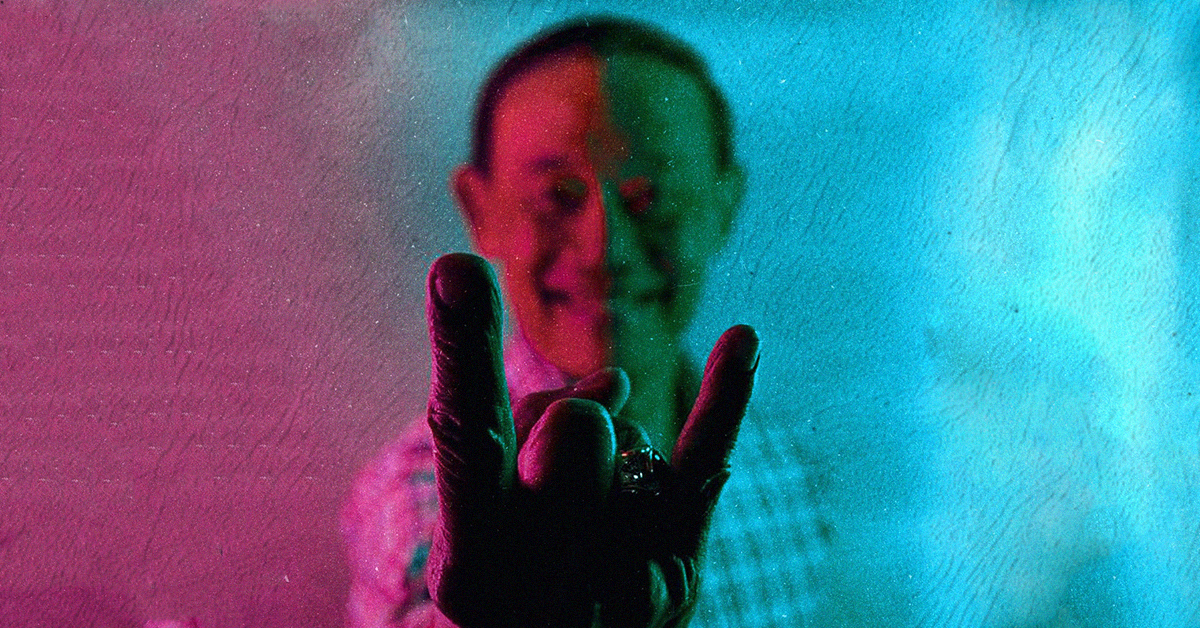
JOSE MARI CHAN: CHRISTMAS IN THE AIR, IN OUR HEARTS
Words and Interview by Cris O. Ramos, Jr.
Photos by Jasper Lawan, assisted by Neil Kenneth Sael
Creative Direction by Santino Baraquiel
Editor’s Note: This exclusive interview with JMC was first published in PULP Magazine Issue No. 184 (December 2016).
The Christmas season in the Philippines won’t be complete without hearing that iconic line “Whenever I see girls and boys selling lanterns on the street…” in the airwaves. That’s Christmas in Our Hearts, hands down the biggest OPM Christmas album in history.
Jose Mari Chan is the voice behind that song alongside seemingly countless pop classics such as “Constant Change,” “Deep in My Heart,” “Can’t We Start Over Again,” “Please Be Careful with My Heart” and “Beautiful Girl.”
And since this is our Christmas issue, PULP went out of its way to interview the undisputed voice of the Philippine Christmas season…
PULP: Parokya Ni Edgar recently covered “Beautiful Girl” in their recently released album, how did you find their rendition of the song? What was the process that they went through before the version got your approval?
Jose Mari: Parokya Ni Edgar must have felt that “Beautiful Girl” was ripe for revival. My publisher, Universal Records, and I readily agreed to it. It’s a good way of introducing the 27-year old song to the younger generation of music lovers. I listened to their mix, did a few melodic corrections and gave the double thumbs up go signal. With a song structure like “Beautiful Girl,” one can’t go too far away from the original feel. And Parokya Ni Edgar has a strong sound and presence. I’m grateful to them for choosing one of my songs in their album. They’ll take it further into the young mainstream.
PULP: How do you find the current state of Original Pilipino Music (OPM)?
Jose Mari: Songwriting and creating music is a highly personal endeavor. It reflects the aspiration and emotion of the times. It is, of course, also influenced by the pervasive western music. I respect all songwriters and singers for their personal expression. I just wish that we always put our local color and culture into the music we produce.The sad thing about our music industry today is the almost total disappearance of CD sales. The business of recording companies has suffered a huge setback. This could impact the future of creative music writing.
PULP: “Christmas in Our Hearts” has become such an iconic staple of the Philippine Christmas season. How amusing do you find it when it’s all over the place?
Jose Mari: “Christmas in Our Hearts” has been one of my best enduring Gifts from GOD.
The melody was first written to a poem written by Chari Cruz-Zarate in 1988 titled “Ang Tubig Ay Buhay” for her Assumption College Silver Jubilee. Then in 1990, I used the melody and turned it into “Christmas In Our Hearts” with co-lyricist Rina Cañiza whom I first met after a Sunday mass. Rina just came up to me, introduced herself and offered to co-write any song with me. I first invited Lea Salonga to sing the Christmas song with me. However, her recording company would not allow her.My next choice was Monique Wilson who agreed to do it, except that a few days before the recording, she lost her voice. Finally, I thought of my daughter Liza who was at the Ateneo then. I guess that was how God wanted it all the time. As they say, things happen for a reason.I feel extra-blessed having a song of mine being a part of my most favorite time of the year, a song that carries the true meaning and the spirit of Christmas.
PULP: How is the typical Chan family Christmas from both in your youth and presently in your own family?
Jose Mari: Christmas, from when I was a child, is always centered around Jesus and the Eucharist. That was how I was brought up. That was how my wife Mary Ann was brought up. Christmas mornings we gather for breakfast and the kids then open their gifts under the tree. We attend Christmas mass together as a family. The whole day, Yuletide music flows freely in our home to enhance the spirit. We welcome carolers to visit our home days before Christmas.
PULP: Out of your numerous accomplishments in the music industry, which one is the most memorable to you and why?
Jose Mari: Music is its own reward but I guess, being honored and recognized by your peers in the music industry is the most important. The success of one’s recordings in terms of record and CD sales comes next. Humility aside, two of the biggest all-time selling albums in our country: Christmas in Our Hearts and Constant Change, both multi-Diamond awardees in sales happen to be mine. A blessing, thank God.
PULP: How do you find the inspiration to write songs? Can we expect new releases from you soon?
Jose Mari: Life itself is a major source of inspiration. Love and life intertwined are sources of joy and happiness. Even the occasional hurts and disappointments can spur one to express them in songs.A songwriter needs his music to be appreciated, of course. But I do realize that pop music constantly changes over time. One just has to adapt without sacrificing his integrity.
PULP: Aside from “Christmas in Our Hearts,” “Constant Change” is arguably one of your most iconic songs. Can you please recall how the songwriting and recording process for that album came about?
Jose Mari: I wrote “Constant Change” on board the plane flying from New York back to the Far East. We had been living in NewYork from 1975 to 1986, working for a sugar trading Company. And after EDSA 1, I was being reassigned back to Manila. Uprooting my roots and leaving friends behind, looking forward to a renewed life in the Philippines made me nostalgic and hopeful. The mixed emotions opened up the inspiration to write,”We’re on the road, we move from place to place and oftentimes when I’m about to call it home, we’d have to move along. Life is a constant change.”
Jose Mari: I grew up loving the music of Little Richard, Elvis Presley, Bill Haley, Eddie Cochran etc. So, of course, Rock n Roll was very much a part of my childhood. As a songwriter I’ve written a few rock tunes, yes, including the theme of the ABS-CBN TV Show that I hosted in 1966 titled 9 Teeners which was clearly inspired by The Beach Boys. But as a singer, my voice lacks the qualities of Rock. So I only sang and recorded the mellow ballads that I have written. And that’s how my fans have accepted me.
We know what date it is tomorrow. ?#FBF to PULP Magazine Issue No. 184 (December 2016) since it's that time of the year.??: Jasper Lawan
Posted by PULP Magazine on Friday, August 31, 2018
Jose Mari: A song carries a message, and once that message has been adequately conveyed, then you’ve accomplished what you’ve set out musically. The finishing touches are in the polishing of your rhyme and reason. I always remember that a song should be a good marriage between words and music.
PULP: How do you find the music that your children do?
Jose Mari: My three sons have definitely inherited the music in my blood. Jose Antonio (“Joe”) writes pop songs. His major influences are The Beatles, the Beach Boys, Gilbert O’ Sullivan, etc. Michael Philip (“Mike”) writes jazz and pop. One of his original compositions has been recorded by the late great Toots Thielemans. Francisco Rafael (“Frank”) also writes in the pop genre. Needless to say, the three of them are better musicians than I can ever be. They play piano and guitar. They’re good in harmony and vocalization. Mike even plays the saxophone. Mike had an award-winning solo album released by BMG titled Five Corners and he and Joe had a band called Generations that recorded and performed all original songs.
Frank, on the other hand, has appeared in local musical productions as an actor. All through grade school, high school and college, he was a soccer player and a very active leader in our Church activities.
PULP: What do you think is the reason that your impact as a songwriter and singer is still largely felt to this day?
Jose Mari: I’m just fortunate and blessed that my songs are still being sung today. Especially my Christmas songs. I would like to think that my simple, hummable songs make it easy for people to appreciate and sing. Popular music changes in form and feel over the years. The type of love songs I write may no longer appeal to a new generation of music lovers. Christmas music, however, remains “generic” and “classic” and so is using the same melodic genre that I employed in Christmas in Our Hearts, my new sequel album sounds just as fresh and contemporary as Christmas morn.
Complete your Christmas by grabbing a copy of PULP Magazine December 2016 Issue and get the lowdown on Jose Mari Chan and his music that has become a staple of Filipino Christmas tradition.
Posted by PULP Magazine on Saturday, December 24, 2016
Jose Mari: My Christmas message is: Let us always remember that “giving and sharing is the real Christmas way.” That’s a quote from my new song called “Christmas Moments.” Let us learn to be considerate of others, to be tolerant and most of all, to be forgiving. I know it’s hard sometimes but we become better persons when we make the effort. PULP







